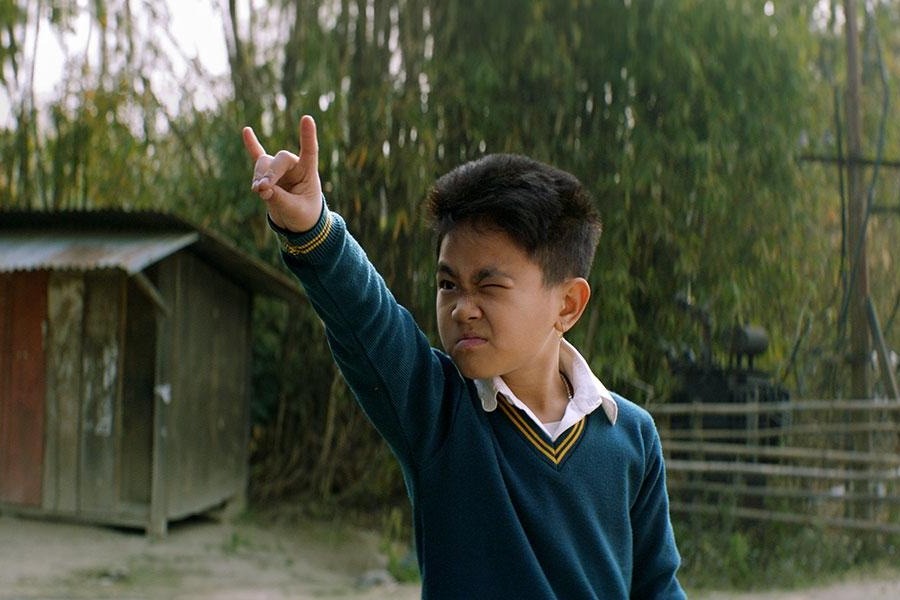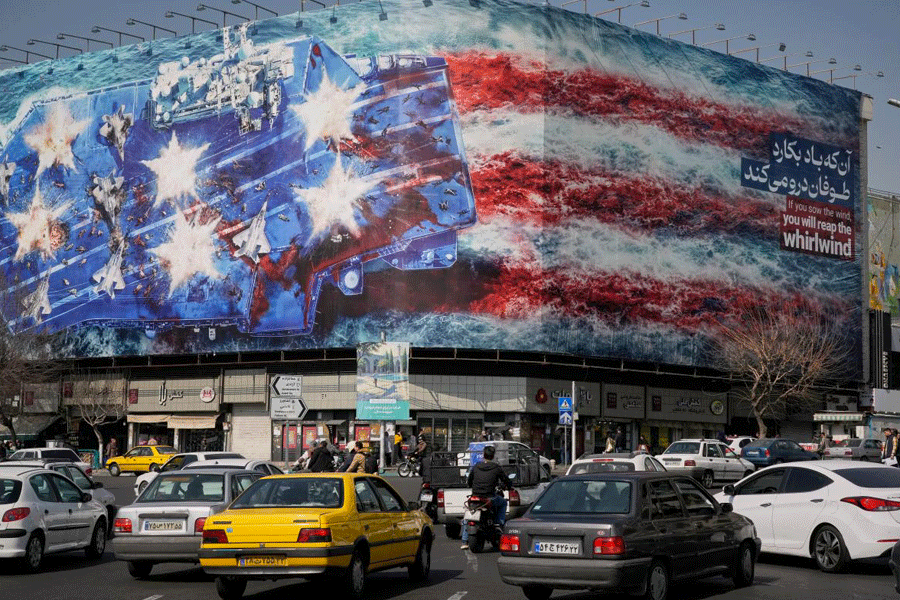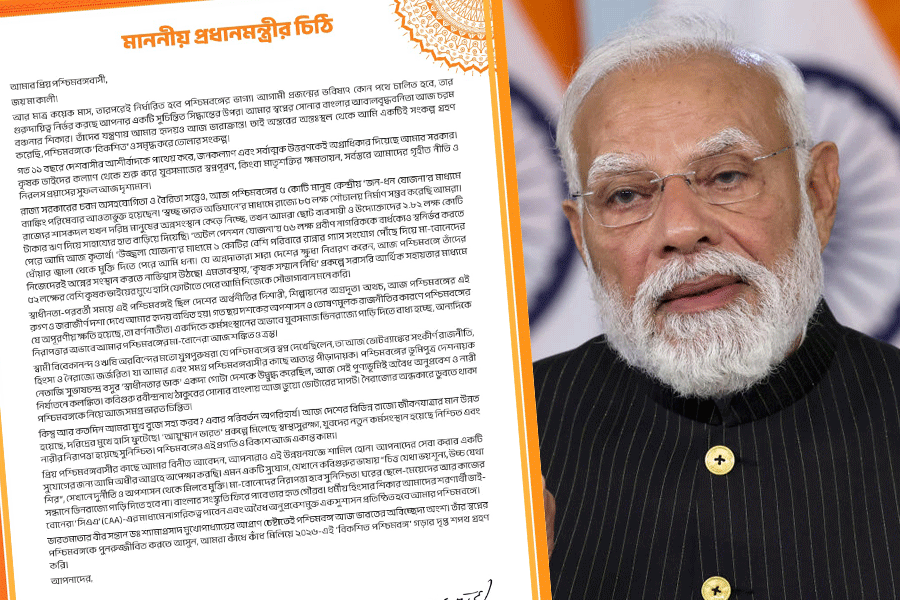 |
Patna, Nov. 20: “We should have killed him three years ago,” says an otherwise suave police officer, regretting the ease with which the erstwhile commander of the “People’s Red Army”, Ajay Sao alias Ajay Kanu alias Ravi Kanu, was rescued by Maoists last Sunday in Operation Jailbreak at Jehanabad, 72 km from the Bihar capital.
Bihar’s most wanted at the moment, the man is both feared and held in awe and respect by the police. The officers admiringly recall eyewitness accounts describing how the “commander”, a prisoner for the past three years, took immediate charge of the operation the moment he gripped an AK-47 smuggled in by his comrades.
It is not easy to handle an assault rifle, they claimed, after three years in prison. But the commander was apparently fast and precise while handling the rifle, changing magazines and shooting down another dreaded prisoner, Bare Sharma of the Ranbir Sena, who refused to leave the prison when ordered to do so.
Sharma, a “class enemy”, had confessed his involvement in 25 murders. “We counted as many as 40 bullet holes in his body,” recalled a grim inspector.
There were attempts to free Kanu from courts during his appearances. But they failed because of the heavy deployment of the special task force (STF). The Maoists, claim the police, are flush with funds and not averse to bribing lawyers or judges to get their men released.
But if their patience ran out and they chose armed action to rescue the commander from jail, they must be planning something even more dramatic which requires the services of Kanu, the police fear. He carried a reward of Rs 2.5 lakh on his head in 2002. Now that he has escaped, police would pay anything to lay their hands on him.
A tough man in his forties, Kanu was caught unawares in 2002 when he was driving to the state capital, where his wife was expecting their child.
Unknown to him, the police had managed to track down his family and take away one of his photographs from the family album. It was circulated to police informers and, in August 2002, one of them recognised the commander travelling in a car, which had stopped to allow the driver to buy cigarettes and betel leaf.
Security agencies were alerted and they managed to intercept the car just before he was to enter Patna.
For over six hours, say policemen, he was administered the third degree but he would neither provide any “actionable information” nor admit to his identity. He kept saying he was a petty trader and asking if the news of his “abduction” by the police had come on radio or television.
It was only after he learnt, from a constable who took him a cup of tea, that the Maoists had accused the police of “kidnapping” Ajay Kanu that he confessed he was the man for whom the police had announced a reward of Rs 2.5 lakh.
“They are all scared that they would be killed in fake encounters,” explained an officer, “and, therefore, the Maoist media cell takes to alerting the media the moment someone important is apprehended.” Only tough nuts can withstand the third degree for six hours, he pointed out.
An arts graduate from Jehanabad College, he is said to have joined the PWG in 1980 to avenge the killing of his father in a land dispute. His flair for using firearms and willingness to get indoctrinated, and possibly his fearlessness, caught the leadership’s eyes and his rise was meteoric as he finally became a central committee member and the local commander.
A few of his comrades have confided, after their arrest, that the commander is an excitable chap, prone to bursts of anger. He is feared by his men because he is said to be ruthless and trigger-happy. Arvind, another Maoist commander who recently jumped bail, is respected more, they claimed, while Kanu sends a cold shiver down their spine.
That he is disliked by a large section of his own men, because of his arrogance and because he does not trust anyone, is confirmed by various agencies.
A “natural leader”, Kanu had quickly mobilised the fellow Maoists in jail, once leading them to an agitation for better facilities. He spent most of his time in the high-security Beur central jail on the outskirts of Patna before being shifted to Jehanabad jail a few months ago to facilitate his appearance in courts there.
Kanu had insisted that all Maoists be put together in a ward and given “basic” facilities. In the Maoist cells in Jehanabad, for example, he had access to cellphones, an independent kitchen and television, besides money. Milk, fish, mutton, etc. would be supplied to the inmates as if they were at home, admit police officials wryly.
The commander would, they say, take care of the needs of the fellow Maoists. If somebody’s lawyer had to be paid, he would shell out the money; if somebody’s family required money for medical treatment, he would be there to pass on the cash. He would be allowed to receive visitors all the time and get whatever he needed. Police officials are, therefore, not surprised to learn that he had actually gained weight in jail.
Prison authorities, claim police officers, are virtually prisoners of the Maoists. Anybody who acts tough with them, the officers acknowledge, promptly receives threats. A Beur jail superintendent even died under “mysterious” circumstances a couple of years ago after he had refused to succumb to pressure.
“Normally, it is enough to convey to prison officials that the Maoists know where their children are studying,” acknowledged a police officer grimly.
The commander is fond of good living, say investigators, and has allegedly amassed wealth. His house at Sipara, next to the Patna bypass, is unpretentious but spacious and a raid had yielded several kilos of jewellery. Photographs in the album showed him and his family at various tourist destinations, including Kashmir and Jaipur.
“Maoists allow the commanders to live it up and provide for their family,” explains an officer with long experience of handling the “Naxalite menace”. “They need periods of good living to de-stress.”
This, he claims, sets the Maoists apart. “If required, they can rough it out in the jungles for several months and run for 10 km at a stretch. But on other occasions, they are quite at home in good hotels, travelling in airconditioned comfort and eating good food.
“They are also more motivated because they know that if something untoward happens to them, their family members would have something to fall back upon.” But neither policemen nor their informers receive even announced rewards.
A “natural leader”, Kanu had quickly mobilised the fellow Maoists in jail, once leading them to an agitation for better facilities. He spent most of his time in the high-security Beur central jail on the outskirts of Patna before being shifted to Jehanabad jail a few months ago to facilitate his appearance in courts there.
Kanu had insisted that all Maoists be put together in a ward and given “basic” facilities. In the Maoist cells in Jehanabad, for example, he had access to cellphones, an independent kitchen and television, besides money. Milk, fish, mutton etc. would be supplied to the inmates as if they are at home, admit police officials wryly.
The commander would, they say, take care of the needs of the fellow Maoists. If somebody’s lawyer had to be paid, he would shell out the money; if somebody’s family required money for medical treatment, he would be there to pass on the cash. He would be allowed to receive visitors all the time and receive whatever he needed. Police officials are, therefore, not surprised to learn that he had actually gained weight in jail.
Prison authorities, claim police officers, are virtually prisoners of the Maoists. Anybody who acts tough with them, the officers acknowledge, promptly receives threats. A Beur jail superintendent even died under “mysterious” circumstances a couple of years ago after he had refused to succumb to pressure.
“Normally it is enough to convey to prison officials that the Maoists know where their children are studying,” acknowledged a police officer grimly.
The commander is fond of good living, say investigators, and has allegedly amassed wealth. His house at Sipara, next to the Patna bypass, is unpretentious but spacious and a raid had yielded several kilos of jewellery. Photographs in the album showed him and his family at various tourist destinations, including Kashmir and Jaipur.
“Maoists allow the commanders to live it up and provide for their family,” explains an officer with long experience of handling the “Naxalite menace”. “They need periods of good living to de-stress.”
This, he claims, sets the Maoists apart. “If required, they can rough it out in the jungles for several months and run for 10 km at a stretch. But on other occasions they are at home while living in good hotels, travelling in airconditioned comfort and eating good food.
“They are also more motivated because they know that if something untoward happens to them, their family members would have something to fall back upon.” But neither policemen nor their informers receive even announced rewards.










